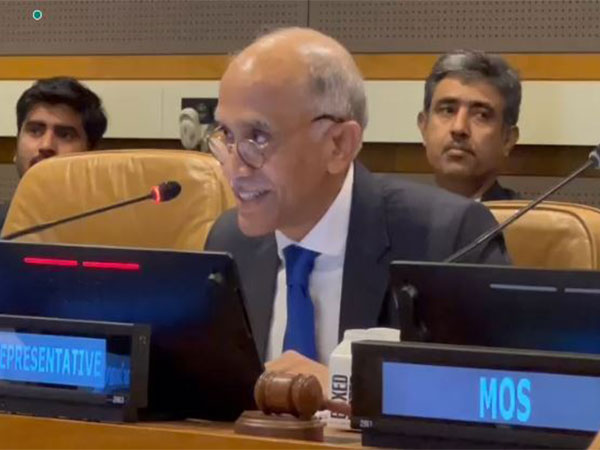US President Biden, PM Modi welcome agreement on IPEF; underscores aim to advance resilience, sustainability, inclusiveness
Sep 21, 2024

Wilmington (Delaware) [US], September 22 : The United States and India underscored on Saturday that the Indo-Pacific Economic Framework (IPEF) seeks to advance resilience, sustainability, inclusiveness, economic growth, fairness, and competitiveness of the economies of its signatories.
The leaders noted the economic diversity of the 14 IPEF partners, which represent 40 per cent of global GDP and 28 per cent of global goods and services trade.
"The Leaders welcomed India's signature and ratification of the Agreements under Pillar III, Pillar IV and the overarching Agreement on the Indo-Pacific Economic Framework for Prosperity (IPEF). The Leaders underscored that IPEF seeks to advance resilience, sustainability, inclusiveness, economic growth, fairness, and competitiveness of the economies of its signatories. They noted the economic diversity of the 14 IPEF partners, that represents 40 percent of global GDP and 28 percent of global goods and services trade," a White House readout of the Biden-Modi meeting said.
The leaders also lauded the strong collaboration under the Strategic Clean Energy Partnership between the two countries, which most recently convened on September 16 in Washington, DC this year.
"The Leaders lauded the strong collaboration under the Strategic Clean Energy Partnership (SCEP), most recently convened on September 16, 2024, in Washington, DC, to strengthen energy security, create opportunities for clean energy innovation, address climate change, and create employment generation opportunities, including through capacity building, and collaboration between industry and R&D," the White House readout said.
Biden, and Prime Minister Modi also welcomed collaboration on a new National Center for Hydrogen Safety in India. They affirmed their "intent to utilise the new Renewable Energy Technology Action Platform" (RETAP) to enhance collaboration on clean energy manufacturing and global supply chains, including through public-private task forces on hydrogen and energy storage.
The Leaders also announced a new Memorandum of Cooperation between the US Agency for International Development and the International Solar Alliance aimed at promoting more responsive and sustainable power systems that leverage diverse renewable energy sources.
"They reaffirmed their commitment to accelerate the development of diverse and sustainable supply chains for critical minerals under the Minerals Security Partnership, targeting strategic projects along the value chain. The Leaders looked forward to the signing of the Critical Minerals Memorandum of Understanding at the forthcoming US-India Commercial Dialogue and pledged to hasten bilateral collaboration to secure resilient critical minerals supply chains through enhanced technical assistance and greater commercial cooperation," the White House readout further added.
The US and Indian sides welcomed the progress made on joint efforts since 2023 for India to work towards IEA membership in accordance with the provisions of the Agreement on an International Energy Programme.
The two leaders reaffirmed their commitment to accelerating the manufacturing and deployment of renewable energy, battery storage, and emerging clean technology in India.
"They welcomed the ongoing progress between India's National Investment and Infrastructure Fund (NIIF) and the US International Development Finance Corporation to provide up to USD 500 million each to anchor the Green Transition Fund as well as encourage private sector investors to match these efforts. Both sides look forward to the expeditious operationalisation of the Green Transition Fund," according to the readout.
The IPEF agreement, relating to supply chain resilience is also referred to as the Supply Chain Agreement. The 14 IPEF partners include the US, India, Australia, Brunei Darussalam, Fiji, Indonesia, Japan, the Republic of Korea, Malaysia, New Zealand, the Philippines, Singapore, Thailand, and Vietnam.
The partner countries have negotiated the IPEF Supply Chain Agreement to establish a framework for deeper collaboration to prevent, mitigate, and prepare for supply chain disruptions, such as those experienced in recent years from the COVID-19 pandemic.
Notably, the IPEF Supply Chain Agreement was negotiated as per the Ministerial Statement on Pillar II (Supply Chains) released during the IPEF Ministerial meeting in September 2022 in Los Angeles, California.
Five IPEF partners, Fiji, India, Japan, Singapore, and the US deposited their instruments of ratification, acceptance, or approval since the signing of the IPEF Supply Chain Agreement in November 2023, which has triggered the Agreement's entry into force provision.



















